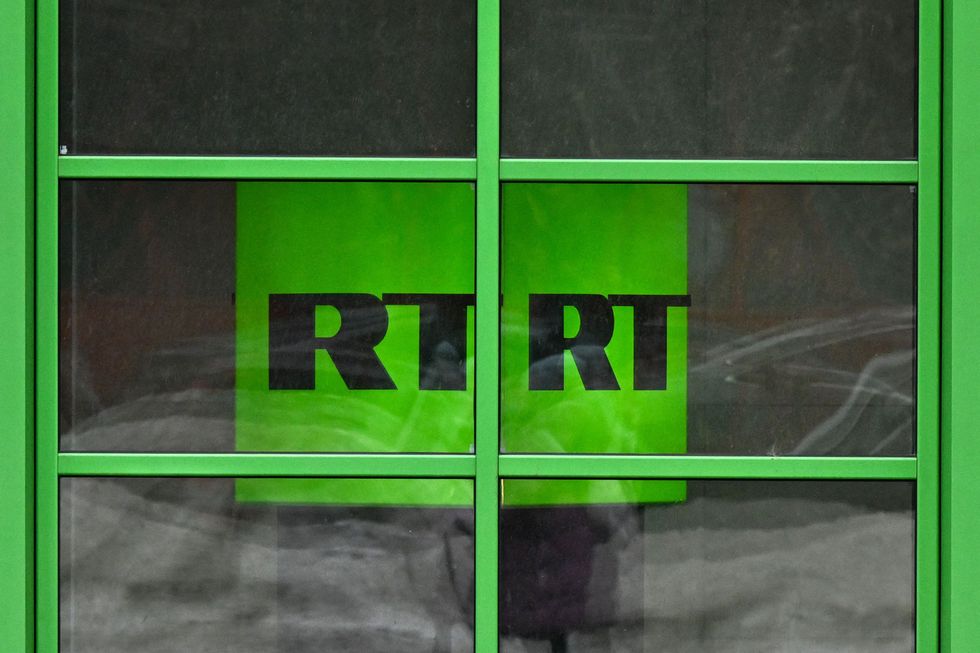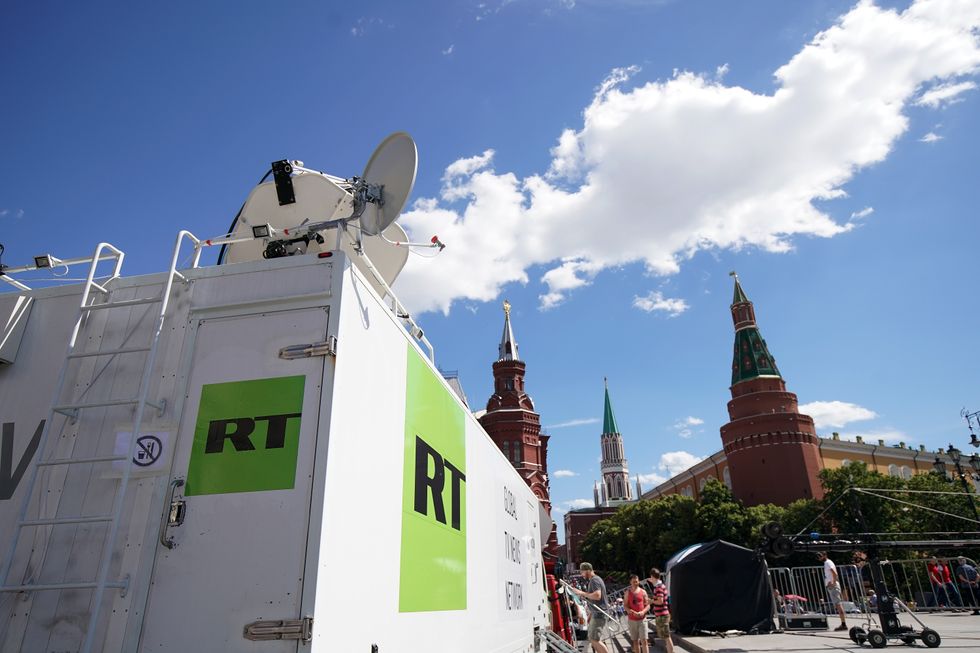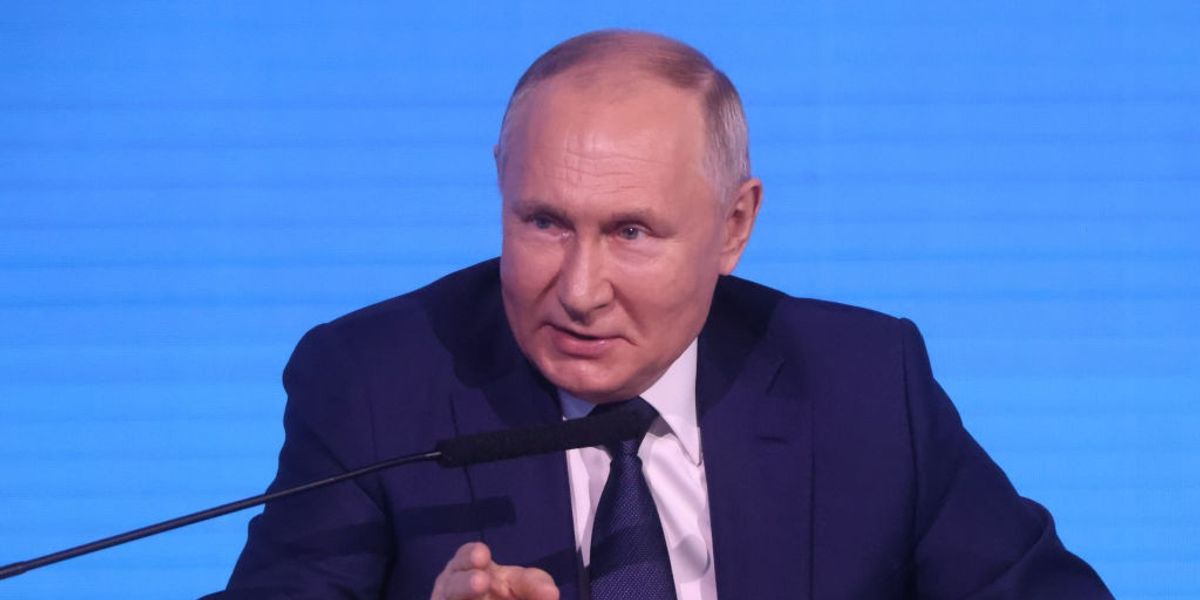Russia is bolstering its propaganda drive in neutral countries as Putin tries to repair his image abroad.
The Kremlin-controlled broadcaster RT has launched an advertising campaign across the Middle East and Africa in an attempt to exonerate Putin of negative perceptions.
The broadcaster, which was banned in the UK and the EU after Russia invaded Ukraine in February 2020, is also aiming to forge new alliances to combat its growing isolationism due to sanctions imposed on Moscow.
RT has come under heavy criticism from the West, after the broadcaster denounced the regime in Kyiv, predicted a victory for Putin’s forces and accused multiple nations of censorship attempts.
Russia boosts propaganda efforts amid fears Vladimir Putin’s image is damaged
Getty
The broadcaster has targeted neutral countries such as the UAE, Saudi Arabia and India, who have become Russia’s key trade partners as they have not imposed sanctions on the country.
Their trade links with Russia provide Moscow with the necessary money required to fund Putin’s propaganda machine.
In India, the network has launched a campaign calling for the return of the Koh-i-Noor diamond, which was given to Queen Victoria during the British Empire’s peak.
There have been calls to return the diamond, which is part of the British crown jewels, since India gained independence in 1947.
LATEST DEVELOPMENTS:

The broadcaster has targeted neutral countries such as the UAE, Saudi Arabia and India
Getty
The advert asked: “Why won’t Britain return the Koh-i-Noor diamond?”, plastering the question over the front page of the Times of India, as well as buying space on public transport.
The move has been seen as part of a strategy by Moscow to derail the West’s relations with India in order to tighten their own relations with the nation.
In the UAE, RT programmes are available in English to be easily consumed. The campaign is entitled “Question More”.
The channel reported that the Ukrainian counter-offensive had been a catastrophic failure and ran a bulletin which implied that public support for Volodymyr Zelensky in Ukraine was dwindling.

The broadcaster was banned in the UK and the EU after Russia invaded Ukraine in February 2020
Getty
Advertising campaigns from the channel’s Arabic division have been launched in UAE, Saudi Arabia, Iran, Lebanon, Jordan, Iraq, Egypt, Algeria, Tunisia, Morocco and Libya.
RT’s Arabic editor-in-chief Maya Manna said: “Access to news is the right of all. RT’s editorial line is embodied by its motto, Question More. We don’t dictate to our audience whom to believe. We give you the facts — you make the choice,”
“Over the years mainstream Western voices sought to shut down RT’s access to platforms, and shut us out of conversations, including on social media and TV broadcasting platforms in Arabic,” she said.
“In doing so, they are not just trying to silence us, they are infringing upon our viewers’ and readers’ right of access to information.”

Emily Foster is a globe-trotting journalist based in the UK. Her articles offer readers a global perspective on international events, exploring complex geopolitical issues and providing a nuanced view of the world’s most pressing challenges.








